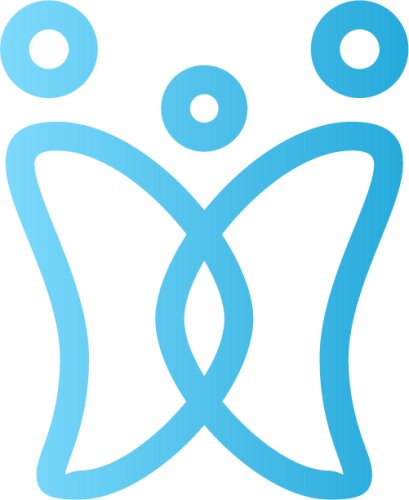Best Domestic Violence Lawyers in Saskatoon
Share your needs with us, get contacted by law firms.
Free. Takes 2 min.
Free Guide to Hiring a Family Lawyer
List of the best lawyers in Saskatoon, Canada
About Domestic Violence Law in Saskatoon, Canada
Domestic violence in Saskatoon is a significant issue that affects individuals across all demographics. It refers to abusive behaviors in an intimate relationship or family setting and includes physical, emotional, psychological, financial, and sexual abuse. The legal system in Saskatoon takes domestic violence seriously, with specific measures and laws in place to protect victims and hold offenders accountable. The government and various organizations work collaboratively to provide assistance and protection to those affected, ensuring safety and support through the legal process.
Why You May Need a Lawyer
There are numerous situations in which seeking legal advice can be critical for individuals dealing with domestic violence. These include:
- Filing for protection orders such as restraining orders against the abuser.
- Navigating the criminal process if the abuser is charged with a criminal offence.
- Understanding your rights and legal options as a victim of domestic violence.
- Dealing with family law issues such as custody, access, or divorce that are complicated by domestic violence.
- Ensuring personal safety and the safety of children involved.
Access to legal support provides clarity, empowers victims, and aids in making informed decisions regarding personal and family safety.
Local Laws Overview
The legal framework in Saskatoon, Saskatchewan, is equipped with specific measures to address domestic violence, which include:
- The Saskatchewan Victims of Domestic Violence Act, which allows victims to apply for emergency intervention orders (EIOs) to prevent further abuse.
- Court-imposed protective measures, such as peace bonds, which can be enacted to restrict contact from the abuser.
- Criminal Code provisions that address various forms of assault, threatening behavior, and harassment.
- The Family Services Act ensures the protection and welfare of children in domestic violence situations.
These laws aim to protect victims and ensure perpetrators are held accountable, with various protective measures and interventions available to those in need.
Frequently Asked Questions
What is considered domestic violence?
Domestic violence encompasses a variety of abusive behaviors in intimate or family relationships, including physical, emotional, psychological, sexual, and financial abuse.
How can I get immediate protection from an abuser?
You can apply for an Emergency Intervention Order (EIO) through the Saskatchewan Victims of Domestic Violence Act, which can offer immediate protection and place restrictions on the abuser.
What should I do if I'm experiencing domestic violence?
If you're in immediate danger, call 911. For non-urgent cases, consider contacting local support services for guidance, document the abuse, and seek legal advice to understand your options.
Can I obtain a restraining order against someone who is not a spouse?
Yes, restraining orders can be obtained against any individual in a domestic context, including partners, relatives, or anyone you have lived with intimately.
Will the abuser be charged with a crime?
If there is sufficient evidence of a criminal act, the police may charge the abuser with offenses such as assault, harassment, or stalking under the Criminal Code of Canada.
How will domestic violence affect child custody arrangements?
The safety and wellbeing of children are paramount in custody cases. Evidence of domestic violence can significantly influence custody and access decisions, often limiting the abuser's contact with the children.
What happens if the abuser violates a protective order?
Violating a protective order is a criminal offense and can result in arrest. Law enforcement will enforce such orders to ensure the safety of the victim.
What support services are available for victims in Saskatoon?
There are numerous local organizations that offer support, including counseling, housing services, and legal aid to victims of domestic violence.
How do I change or cancel a protective order?
A court hearing is typically required to modify or cancel a protective order, necessitating legal guidance to navigate the process.
Is legal aid available for domestic violence cases?
Legal aid services can provide assistance for eligible individuals, aiding in navigating the legal system and ensuring access to necessary services.
Additional Resources
Several organizations provide support and resources for individuals affected by domestic violence in Saskatoon:
- The Saskatoon Crisis Intervention Service offers 24/7 support for those in distress.
- The Saskatchewan Ministry of Justice provides information and resources on domestic violence.
- The Family Violence Outreach Program offers guidance and assistance to affected families.
- The Saskatoon Police Service has a Domestic Violence Unit dedicated to supporting victims and investigating cases.
Next Steps
If you or someone you know is experiencing domestic violence and requires legal assistance, consider the following steps:
- Contact local law enforcement or emergency services if you are in immediate danger.
- Reach out to a local domestic violence support organization for advice and support.
- Consult with a lawyer experienced in domestic violence cases to explore your legal options, including protection orders and custody arrangements.
- Keep detailed records of all incidents of abuse and related communications.
- Utilize available legal aid services if necessary to ensure you have adequate representation and support.
Ensuring your safety and understanding your legal rights are the first steps in dealing with domestic violence. Reliable support systems and legal guidance are crucial to navigating this difficult situation.
Lawzana helps you find the best lawyers and law firms in Saskatoon through a curated and pre-screened list of qualified legal professionals. Our platform offers rankings and detailed profiles of attorneys and law firms, allowing you to compare based on practice areas, including Domestic Violence, experience, and client feedback.
Each profile includes a description of the firm's areas of practice, client reviews, team members and partners, year of establishment, spoken languages, office locations, contact information, social media presence, and any published articles or resources. Most firms on our platform speak English and are experienced in both local and international legal matters.
Get a quote from top-rated law firms in Saskatoon, Canada — quickly, securely, and without unnecessary hassle.
Disclaimer:
The information provided on this page is for general informational purposes only and does not constitute legal advice. While we strive to ensure the accuracy and relevance of the content, legal information may change over time, and interpretations of the law can vary. You should always consult with a qualified legal professional for advice specific to your situation.
We disclaim all liability for actions taken or not taken based on the content of this page. If you believe any information is incorrect or outdated, please contact us, and we will review and update it where appropriate.











